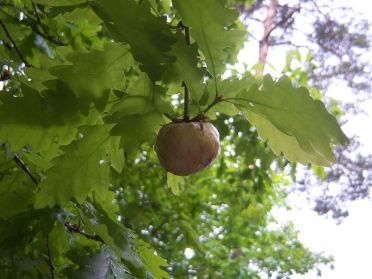The fifth day of Christmas.
Mongolian Independence Day – see 26th November
Texas founded 1845 (Davy Crocket fighting against the Mexican army in the Battle of Alamo; oil; Austin country music; eat Tex-Mex)
Ireland’s Constitution Day:
Celtic or Iron-Age Ireland was from the 8th century B.C. Ptolemy, an Egyptian who wrote in Greek, called Ireland ‘Little Britain’, and England and Scotland were called ‘Great Britain’.
St Patrick came over with Christianity in 431 A.D. and the druidic system collapsed. The Irish were a bunch of tribes until they established a High King of Ireland, who ruled from the Hill of Tara from the 7th century A.D.
While the Dark Ages hit Europe, Irish monks and scholars continued to learn Greek and Latin and were very good at illuminating manuscripts (like the Book of Kells) and making jewellery.
Then the Vikings came along pillaging and ruined everything. The Normans (who by then were also technically the English) came over in 1169 to invade but Henry II had to come round three years later to sort them out.
After that Ireland successfully ignored England’s rule, which essentially extended only over the ‘Pale’, a bit of land around Dublin. However, Henry VII remembered, and reminded everyone that he was King of Ireland and invaded.
Tyrone’s Rebellion, or the Nine Years’ War, saw the Irish chieftains fight against him before fleeing to Europe. After that the English invaded more, took their land and even sent a lot into slavery in the West Indies! No wonder they hate us!
England then enforced laws that didn’t allow Roman Catholics any rights at all, so only those that followed the Church of England could, e.g., inherit property or sit in Parliament, etc.
In 1739-41 there was a horrible frost that ruined crops across Europe and caused a terrible famine in Ireland.
From 1798 Ireland was allowed to make its own laws, but when Ireland tried to have a proper rebellion the English military squashed it and from 1801 declared Ireland part of ‘the United Kingdom of Great Britain and Ireland’. Catchy.
In the 1840s the Great Famine was caused by a potato disease because so many Irish ate almost only potatoes. 1 million died and another 1 million emigrated. Ireland’s population is still less than it was before this famine.
From then some Irish campaigned for ‘Home Rule’, where Ireland would be allowed to rule itself while remaining part of the United Kingdom.
Ulster Unionists (who were in favour of the Act of Union that made Ireland part of the United Kingdom) were against this because they were Protestant and thought Home Rule would be dominated by the Catholics. England thought it had reached a compromise by allowing most of Ireland Home Rule except for Ulster, Northern Ireland.
While England was busy in World War I, the Easter Rising was another rebellion trying to get England to give up Ireland. England responded by executing 15 leaders and imprisoning more than 1,000 people. This did not help our popularity. We then tried to impose conscription.
After that, the Sinn Fein (Gaelic for ‘we ourselves’) left-wing independent party had overwhelming support from the Irish and declared Ireland to be an independent republic. Their army, the Irish Republican Army (IRA), fought against Britain for three years in a guerrilla war called the Irish War of Independence (1919-21).
England then allowed Ireland independence but offered Northern Ireland the chance to opt out and remain part of the UK, which they accepted.
The Irish Republic became the Irish Free State… and then dissolved into civil war for a while, mainly out of opposition to the Anglo-Irish treaty which arranged all this but still wanted Irish people to swear allegiance to the English king.
For a while Ireland was doing really well but the 2008-10 global recession left it pretty miserable.
Northern Ireland, of course, has been divided by Roman Catholics wanting to join the rest of Ireland in independence and Protestants wanting to stay in the UK.
The Protestants vote for the Ulster Unionist Party, who did something called ‘gerrymandering’, which is where you move the boundaries of electoral districts so you get a greater majority of the votes.
From 1969 the Troubles began, where both sides were very violent to each other, and Britain removed Northern Ireland’s right to Home Rule, which surely annoyed everyone even more.
The old Irish Republican Army, which wanted non-violent civil demonstrations for Catholic rights and against British rule, split into a new group, the Provisional IRA, who were super-violent. However, they were reacting to a violent time, and the Protestants were just as violent.
The British army also behaved appallingly, picking on the Catholics more than the equally naughty Protestants and torturing and detaining them without trial. On Bloody Sunday in 1972 the British army shot dead 26 people who were conducting a peaceful unarmed protest.
In the 1980s and ’90s the IRA blew up some very big bombs in Brighton, London and Manchester.
In 1998 the Good Friday Agreement ended the fighting, restored Home Rule to Northern Ireland and the British army stopped having to support Northern Ireland’s police. This was back in the good old days of Labour before Tony Blair became a war criminal.
Ireland has amazing myths, legends and landscapes.
Newgrange was thought to be the abode of the Tuatha de Danaan, which were a kind of fairy (but very tall and powerful) – we now know it is an incredible work by Neolithic people before Stonehenge or the Egyptian pyramids were thought of.
The Giant’s Causeway was said to be built by Finn MacCool (great name) who built a causeway to Scotland, but a giant ripped it up so that Finn could not chase him.

Blarney Castle holds the Blarney Stone, which if you kiss gives you the gift of eloquence and is also said to be the Lia Fail stone upon which Irish kings were crowned.
Older children might like to have a go at colouring in some Celtic knotwork or illuminating a letter or a poem for someone’s birthday. Read a children’s version of Jonathan Swift’s Gulliver’s Travels. Try some Riverdance, Gaelic football or hurling.
Incwala Ceremony (Swaziland, 2015)


















